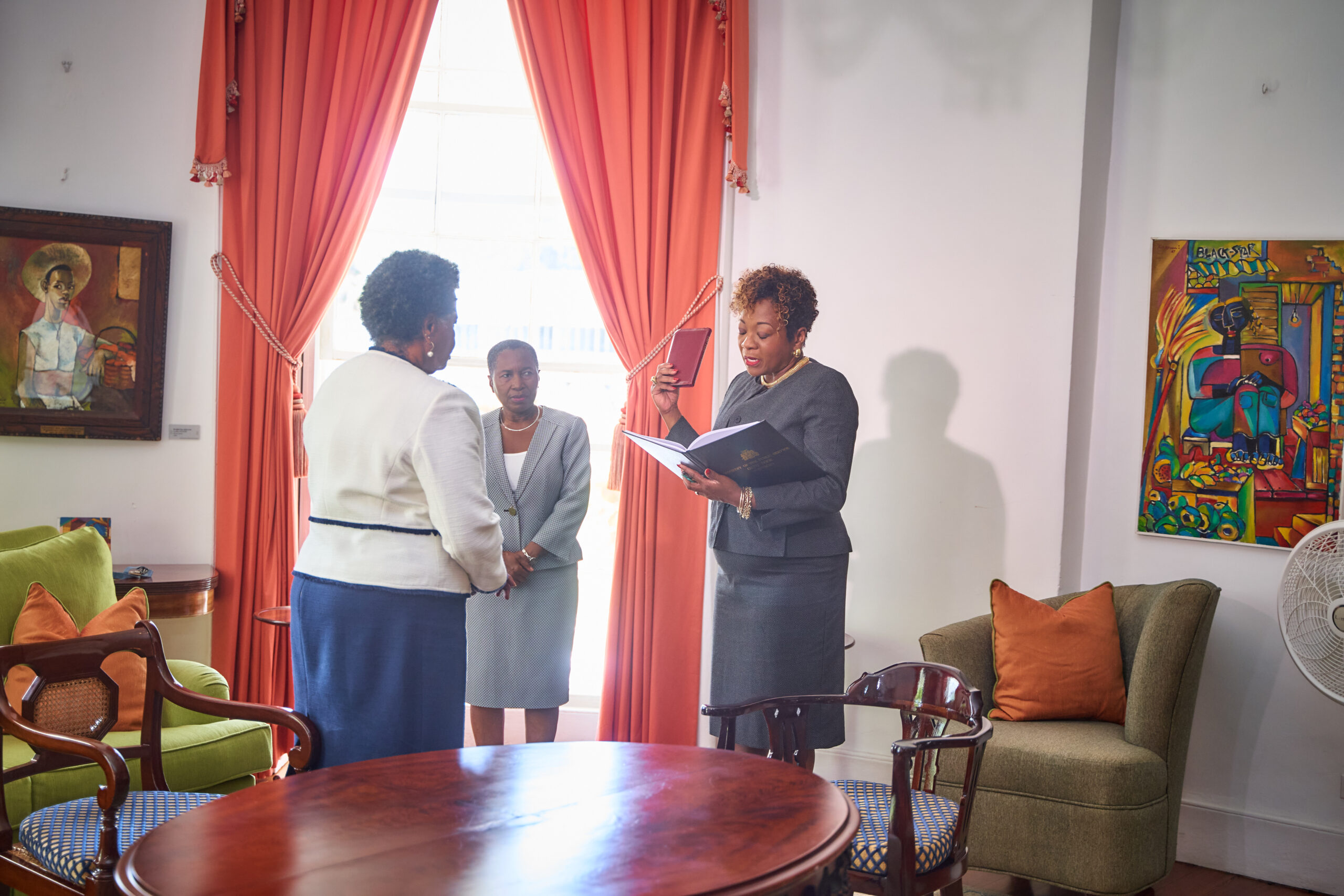New Appeal Court Justices Sworn In, Encourage Alternative Dispute Resolution to Reduce Backlog

June 1, 2024
New appeal court justices sworn in, urge litigants to opt for alternative dispute resolution to reduce justice system backlog. Embrace settlement culture to save time and costs, suggests Justice Chandler.
Two new appeal court justices were sworn in on Friday with one urging litigants to opt for alternative dispute resolution that could help considerably to reduce the justice system’s backlog.
Justice William Chandler made the call as he and fellow High Court Justice Jacqueline Cornelius-Thorne were elevated to the Court of Appeal in a ceremony on Friday at State House, where they took their oaths of office before President Dame Sandra Mason, close family and friends.
Justice Chandler later told reporters that he thought the backlog of cases facing the courts could be reduced if litigants pursued settlements instead of going through the High Court, Appeal Court and Caribbean Court of Justice.
He said: “These issues [in the courts] are perennial, I would say. What I am hoping for is that practitioners and the public alike will embrace the new philosophy of rules in terms of settlement. We have not, over the years, developed that culture of settlement; this is still a very litigious society and that adds to the backlog. Hopefully, the lawyers would embrace the new culture under the new CPR – civil procedure rules – and will encourage settlement among litigants.
“What that will do is that it will reduce time [and] it will save litigants costs because we must be conscious of the fact the legal fees don’t come down, they go up. Court costs also go up. So I think the public must embrace the new culture, as well as the lawyers, so you have less matters coming before the courts.”
Achieving a settlement rate of 80 or 85 per cent, while challenging, would significantly reduce the number of cases proceeding to court, ensuring that only the minimum required cases are litigated, the jurist suggested.
When asked about how he feels about his elevation to the appeals Bench, Justice Chandler said: “I was asked several years ago to consider acting as a judge, and I did accede to that request. I must say that it has been a wonderful experience. The initial thought of being a judge was not within my contemplation when I was called to the Bar, to be frank, but having served as an acting judge, having then been called by the then chief justice to serve as a permanent judge, I had enjoyed the experience.”
Justice Cornelius-Thorne told reporters that she was pleased with her new position, and added that an increase in resources allotted to the judicial system is still required to effectively manage the current caseload.
“We have both had experience on the Court of Appeal before, so we are looking to move forward the work of the Court of Appeal, together with the Chief Justice and the other judges. This is the first time that there have been two full panels and we hope that we will be able to really move faster and stronger and better,” she said.
“There are a number of things that would be useful to help judges generally; the judiciary is not as well-resourced as it should be in terms of personnel, in terms of technology, and I think the new chief justice has indicated already that he intends to do an administrative review to ensure that the needs of the judiciary are fully met. Once that is done, and it’s a continuing process, the aim of this Court of Appeal, and in fact this judiciary, is to reach a state of zero, that your disposition rate is actually higher than the matters coming in.” (SB)


